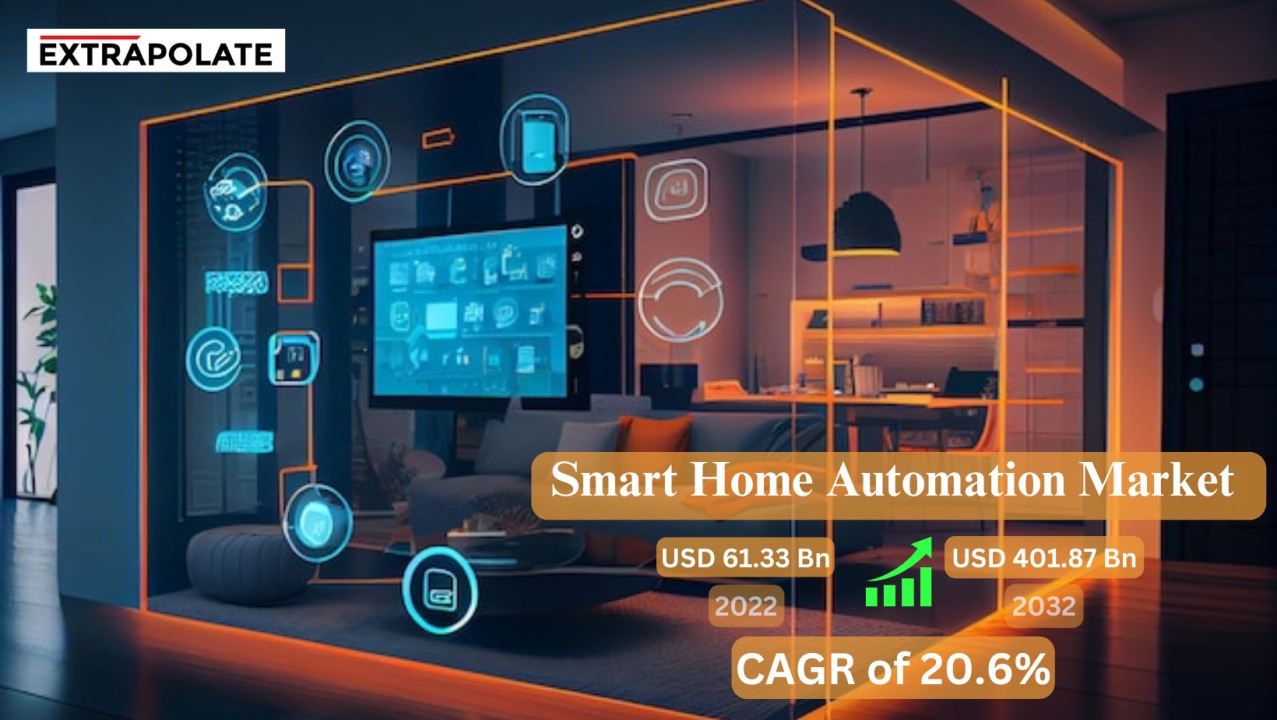Smart Home Automation Market Analysis, Development Trend and Investment Feasibility 2031
Smart Home Automation Market was worth around USD 61.33 billion in 2022 and is predicted to grow around USD 401.87 billion by 2032, with a compound annual growth rate of roughly 20.6% between 2023 and 2032.
Recent Developments:
March 2023- Johnson Controls launched a screen-free new IQ Pro Hybrid Security Panel supporting PowerG sensor technology and reliability to build for intrusion protection to create a personalized solution for customers.
June 2022- Tata Power launched a new AI-Powered smart home automation solution, PIR (Passive Infrared) Motion Sensor for the conservation of energy and reduces electricity bills for customers.
Get The Complete Scope Of The Report @ https://www.extrapolate.com/in....formation-technology
Global Key Players Profiles:
ABB, Crestron Electronics, Inc., FIBAR GROUP S.A., General Electric Company, GM Modular Pvt. Ltd., Google LLC, Havells Group, Honeywell International, Inc., Johnson Controls, Legrand
Regional Market Insights:
North America continues to lead the global smart home automation market, accounting for approximately 40% of the market share. The region’s dominance is attributed to:
High consumer awareness and adoption rates
Presence of major technology companies and startups
Advanced telecommunications infrastructure
Favorable government initiatives promoting energy efficiency
The Asia-Pacific region is expected to witness the fastest growth during the forecast period, driven by:
Rapid urbanization and increasing disposable incomes
Growing middle-class population
Government smart city initiatives
Increasing internet and smartphone penetration
Emerging Trends:
Several emerging trends are shaping the future of the smart home automation market:
Voice-Controlled Assistants: The proliferation of voice-activated devices is expected to continue, with an estimated 8.4 billion digital voice assistants projected to be in use worldwide by 2024.
AI-Powered Personalization: Advanced AI algorithms are enabling smart home systems to learn and adapt to user preferences, offering highly personalized experiences.
Edge Computing: The shift towards edge computing is improving response times and enhancing data privacy in smart home applications.
5G Integration: The rollout of 5G networks is expected to significantly boost the capabilities and performance of smart home devices.
Blockchain for Security: Blockchain technology is being explored to enhance the security and privacy of smart home data.
Conclusion:
The smart home automation market is at an inflection point, with technological advancements and changing consumer preferences driving unprecedented growth. As the market matures, we can expect to see more innovative solutions that seamlessly integrate into our daily lives, offering enhanced comfort, security, and efficiency.
Contact us:
Kings Research
Website: https://www.kingsresearch.com
E-mail: business@kingsresearch.com
Phone: (+1) 888 328 2189












